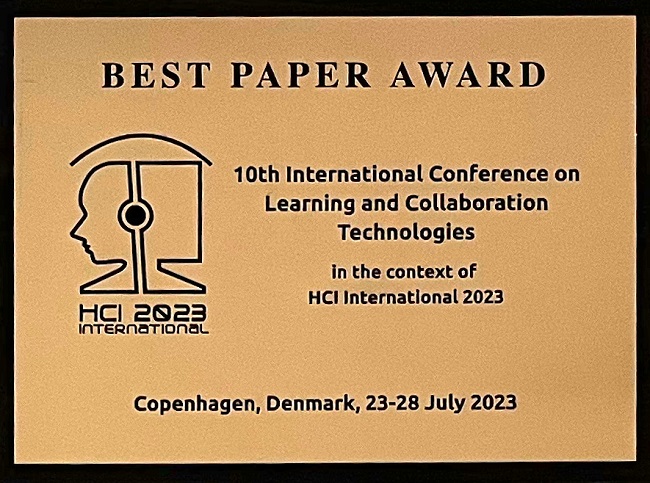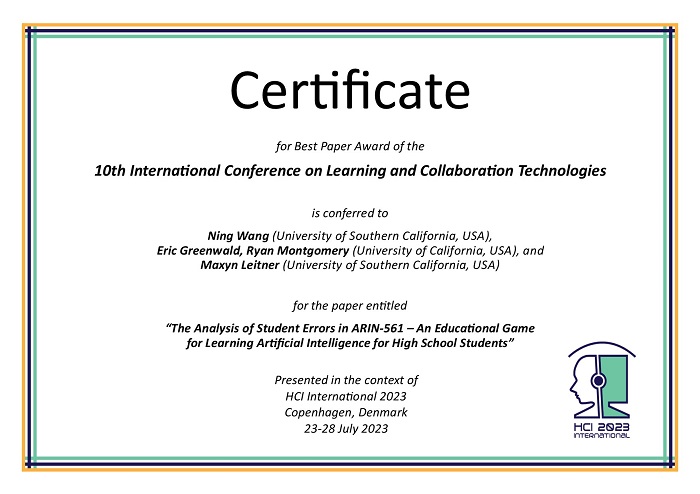
Best Paper Award for the 10th International Conference on Learning and Collaboration Technologies, in the context of HCI International 2023, Copenhagen, Denmark, 23-28 July 2023

Certificate for Best Paper Award of the 10th International Conference on Learning and Collaboration Technologies
The award has been conferred to
Ning Wang (University of Southern California, USA),
Eric Greenwald, Ryan Montgomery (University of California, USA), and
Maxyn Leitner (University of Southern California, USA)

Ning Wang
(presenter)
for the paper entitled
"The Analysis of Student Errors in ARIN-561 - An Educational Game for Learning Artificial Intelligence for High School Students"
Presented in the context of
HCI International 2023
Copenhagen, Denmark
23 - 28 July 2023
Paper Abstract
"Around the world, the prevalence of artificial intelligence (AI) in global citizens' work and life has been recognized by government and intergovernmental agencies. Efforts by researchers, practitioners, and policy-makers are underway to develop guidelines, curriculum and best practices to help the future workforce who are youth in today's classrooms develop basic AI competencies. While there is growing attention to broadening AI educational opportunities and, especially, to providing learning experiences for younger students, relatively little is currently known about how to most effectively provide AI education to K-12 (kindergarten through 12th grade) students. In this paper, we discuss the design and evaluation of an educational game for high-school AI education called ARIN-561. Drawing on feedback from over 1,200 students, we conducted analysis on student performances in the game, particularly student errors. Results show the relationship and dependencies of different activities within the game and shed light on the design instructional support to help students build AI knowledge to succeed in the game."
The full paper is available through SpringerLink, provided that you have proper access rights.